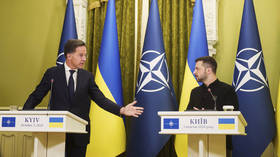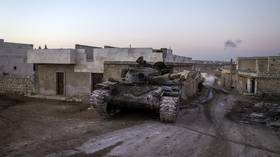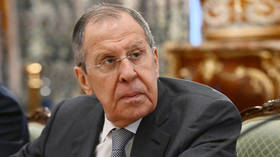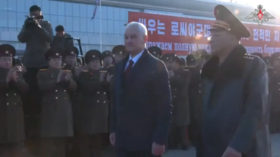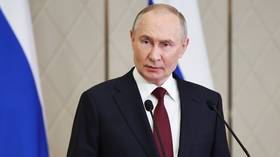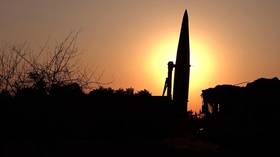‘No deal on Iran would be egg on US, Europe faces’
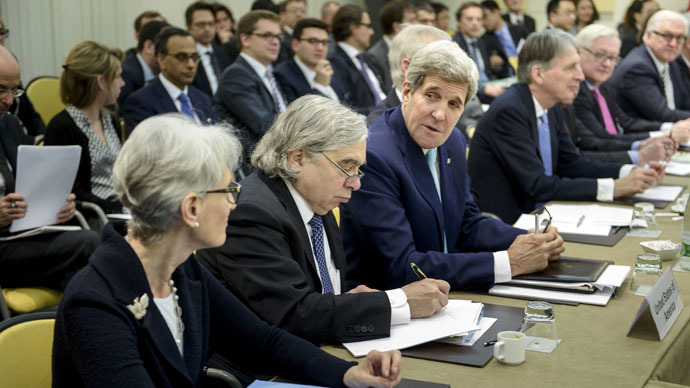
The West needs a nuclear deal with Iran more than the Iranians do since they’ve already survived the economic sanctions and made some concessions, said Sreeram Chaulia, international affairs expert. The ball is now in the West’s court, he added.
Sreeram Chaulia, international affairs expert says “the West has no option but to recognize Iran’s national rights to peaceful use of nuclear energy.”
Tehran, he told RT, has been reasonable and made concessions over the past year of negotiations. Therefore there’s no reason why the West should stick to a maximalist stance and insist on gradual removal on the sanctions against Iran.
READ MORE: Nuclear deal with Iran ‘reached on all key aspects’ – Lavrov
“Iran expects and thinks that it is stronger geopolitically in the Middle East right now to be able to extract more from the West. Frankly, the West has invested so much political capital in these negotiations that for them to walk away without a deal I think there is going to be an egg on the face for Obama and for the Europeans,” Chaulia said.
In his opinion, there is a possibility that sanctions would not be removed right away.
“I think Iran will take it at the end because it is a pragmatic give-and-take in bargaining,” the expert added.
Chaulia suggests that “we have the Israelis who don’t want this deal, the Saudis who are trying to scupper this deal, all the Gulf monarchies are opposed to this, Egypt is opposed to this.”
“I have a feeling that there will be a lot of political courage required from President Obama and the US, and the European capitals to stick to the basic point which is that we need to have a rapprochement with Iran on mutually acceptable terms and we cannot bully them into submission,” he told RT.
He argues that the Israelis and the Saudis want to go back to the old Cold War type confrontation against Iran. He thinks that the West has moved in a different direction over the last six months “especially since these talks have moved forward.”

Chaulia believes that the situation in Yemen makes it more difficult since “Americans back the Saudis as they are right now against the Houthi rebels who are backed by Iran.”
“It means that there is no strategic trust, and the mistrust is going to repay itself and potentially scupper these nuclear negotiations,” he added.
The expert said that all the skeptics’ claims that Iran was “highly divided and hardliners were going to crack down” on Mohammad Javad Zarif and Ali Akbar Salehi negotiating in Switzerland “have not come true.”
“In fact, Ayatollah Khomeini has said with great confidence that no one in Iran is opposed to a nuclear deal. He has managed in many ways to silence some of the critics and skeptics,” Chaulia told RT.
So Iran is capable of making more compromises and they are “putting the ball in the Western court,” he added. According to the expert, “the political courage and concessions have to come from the West right now because they need stability in the Middle East and they need rapprochement with Iran.”
“The Iranians are right when they say that it’s the West that needs this deal more than the Iranians do because the Iranians have in many ways survived the economic sanctions for a long, long time,” said Chaulia.
He disagrees that Iran is going to buckle under the pressure and is sure that it won’t agree to “a bad deal” with the West.
It’s expected the negotiated deal would allow Iran to reduce the number of centrifuges by about 40 percent, from roughly 10,000 to 6,000, according to Associated Press.
Israel, however, is not happy about that, said Uzi Eilam, the former head of Israeli Atomic Energy Commission.
“The remaining question is whether the advanced centrifuges will be developed further on or they will stop,” he told RT.
“I think that the very important element of the agreement would be letting the people of the IAEA [International Atomic Energy Agency] get access to all of the sites of nuclear activity in Iran and this is something that is still debatable,” he said.
READ MORE: Iran: Sanctions must be dropped for nuclear deal
‘Whole world wants this deal to go through’
Political analyst Caleb Maupin suggests that Iran has never attacked anyone and it’s only willing to develop peacefully and to fit into the world system.
“[Iranians] have rejected Western neo-liberal capitalism and they’ve developed an economic model in which religious principles and morality is given priority over profits and finance. And that system that they’ve developed, their independent model of development, is a threat to the power of Wall Street and the forces of the bankers in London and in Wall Street who run the world. They are threatened by that development because if one country can break free, other countries can break free. So the attempts to suppress Iran is really about asserting the power of Wall Street and London all over the world and kind of threatening the ability of countries around the world to work in their own interests, not be financially enslaved by the West.”
“The whole world wants this deal to go through. Let’s speak clearly when you talk about the US allies in the Middle East: Israel shocked the world with its viciousness and its crimes against the people of Palestine recently. And right now as we speak, the Kingdom of Saudi Arabia, an absolute autocratic monarchy that violates human rights left and right… at this very moment it is bombing and attacking and killing people in Yemen. Yet Iran has never attacked anyone. Iran only wants to peacefully develop and fit into the world and do so in its own path. The Islamic Republic is a society that was born out of a very popular revolution in which the Iranian people rose up, overthrew the brutal US backed dictator and began to develop independently.”
The statements, views and opinions expressed in this column are solely those of the author and do not necessarily represent those of RT.
The statements, views and opinions expressed in this column are solely those of the author and do not necessarily represent those of RT.


